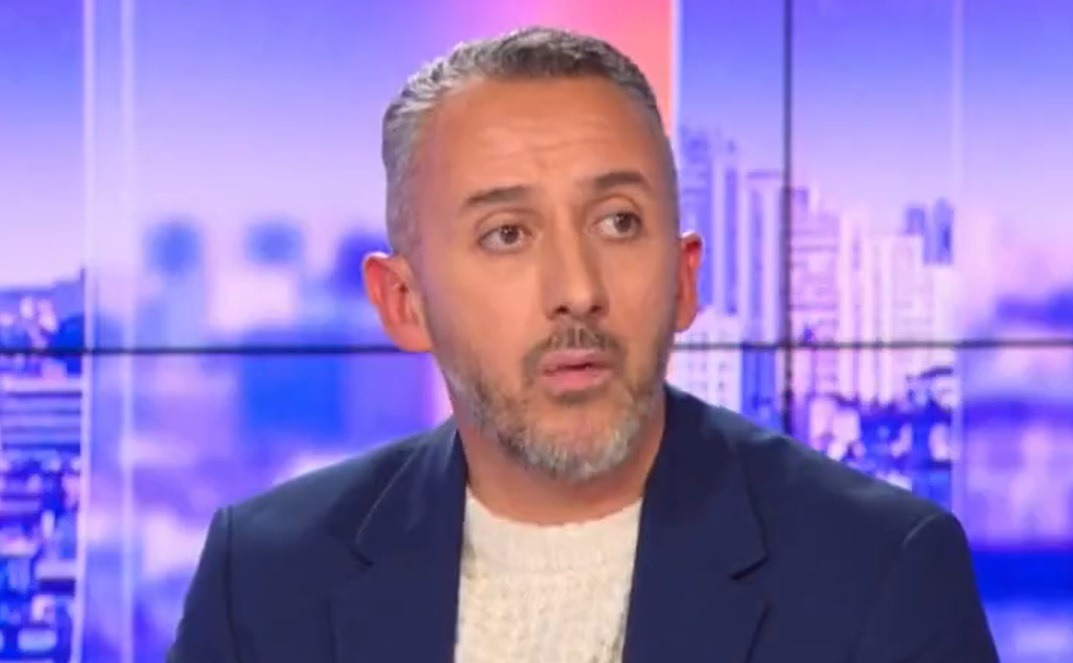Farid El Haïry is a man whose life as he once knew it was altered by a lie which led to him being branded as a sexual predator and shunned by French society. His ordeal dates back to 1999 when police charged him with rape solely on the word of a 15-year-old girl, Julie D without any witness or corroborating evidence.
Ahead of his commencement of apprenticeship job in a bakery in northern France, the French Arab was at home in Hazebrouck, in February 1999 when a rural police officer called to ask if he could come down to the gendarmerie for a chat.
Join our WhatsApp Channel“I asked them why and was it urgent,” he says. “It’s nothing serious,” he remembers being told. “Come when you can. It won’t take long.” With this assurance, he set out for the brick station a couple of days later but would not return home for years.
El Haïry, who has a North African heritage, was charged with the sexual assault and rape of a 15-year-old girl from a neighboring high school, whom he knew only by sight and had never spoken to. The police had no witnesses, no corroborating evidence, just her word against his.
After a night at the gendarmerie, he was sent to a nearby prison that was notorious for overcrowding, drug use and suicide. He spent the next 11 months and 23 days in pretrial custody before being released with one painful condition — stay away from his home city, where not only his accuser but his friends and family, lived.
At a trial in 2003, a jury found him guilty and sentenced him to five years in prison, but so much of it was suspended that he would not return to jail. But after spending a year in prison, El Haïry faced 23 more years of mental imprisonment before his exoneration. This happened in 2017 when Julie D. admitted to fabricating the allegations, revealing that she had been a victim of incest by her older brother. This shocking confession prompted the Court of Revision to recognize El Haïry’s innocence and annul his conviction. The court’s decision cleared El Haïry’s name and removed his information from the criminal record.
With his exoneration, El Haïry plans to seek compensation for the wrongful conviction. However, no amount of money can compensate for the years of his life lost to an unjust accusation. The stain of the false accusation continues to linger, affecting his personal and professional relationships.
The New York Times report as follows provides more insight into the matter
Sitting in the gendarmerie on that morning in 1999, Mr. El Haïry assumed it was a mistake. So did his family.
“It was impossible,” said his cousin Angélique Vanhaecke. “He never even talked to girls.”
But over time, as the investigation continued and Mr. El Haïry suffered strip searches and solitary confinement, he began to feel differently.
“Something was wrong,” he said on a recent walk around Hazebrouck to revisit the scenes of a crime that never happened.
“They were looking for a culprit,” he added.
As a French Arab who grew up in his hometown’s only housing project, he believed he made for a convenient one.
Hazebrouck is a middle-class city of 21,000 people in a region known for its rich farmland, work ethic and love of beer. Locals describe it as insular and quiet. Only 2 percent of residents were immigrants in 2019.
Before his parents rented a nearby house, El Haïry grew up in “the blocks” — a group of subsidized high-rises where many of the town’s few immigrant families lived.
His father worked at a steel plant in Dunkirk, 28 miles away. His mother, who grew up in Hazebrouck, was a cook in a hospice. Farid was the youngest of their three sons — a wiry boy buzzing with energy who roared around the neighborhood on a bike.
“He liked to laugh, tease and roughhouse,” Ms. Vanhaecke said. But, she added, “he wasn’t violent at all.”
As a teenager, Mr. El Haïry was stopped regularly for identity checks by the local police. Sometimes, he recalled, the same officers would stop him more than once a day.
Racial profiling by the police is a longstanding grievance in France. One 2017 study found that young men “perceived to be Black or Arab” were 20 times as likely to be subjected to identity checks compared with the rest of the population.
Mr. El Haïry had no criminal record.
Court documents give his accuser’s original account: Mr. El Haïry had stopped her on the street one winter evening with a group of friends, described as of Northwest African origin. Together, they hauled her down an alley, pinned her down and molested her, she said.
She knew Mr. El Haïry only by sight. But he was known as “a violent individual.”
Five months later, she crossed paths with Mr. El Haïry again near the public pool. This time, a different man, again described as of Northwest African origin, held her to the ground while Farid raped her. She said she had been a virgin.
Mr. El Haïry vehemently denied all of it.
The police were never able to identify the man from the second incident. The accuser did pick out three of Mr. El Haïry’s friends from the first. Officers obtained initial statements from two that they had crossed paths with her alongside Mr. El Haïry.
Under questioning from a magistrate months later, however, the stories shifted. The two friends said they had been pressured into their statements by the officers, and denied ever seeing Mr. El Haïry and the victim together. The accuser said while the friends had talked to her, only Mr. El Haïry had molested her.
The case went forward anyway.
“The police should have immediately, immediately, immediately said to themselves, ‘It’s not just one thing that is inconsistent, it’s a lot of things,’” Mr. El Haïry said.
The gendarmerie in Hazebrouck declined to comment. They had not kept records of the investigation, an official said, and none of the officers involved still worked there.
After being released from custody, Mr. El Haïry moved into an uncle’s apartment in Pantin, a Paris suburb.
His parents traveled three hours to bring him groceries regularly. “I saw how my parents suffered,” said Christian El Haïry, Farid’s eldest brother. “They lost their little boy.”
Mr. El Haïry was required to report weekly to a police station, which often took hours. He lost his first job as a shoe salesman because he couldn’t explain the absences. He struggled to keep and make friends because he worried they would find out.
“He was broken,” Ms. Vanhaecke said. “He had a joie de vivre. From one day to the next, it was gone.”
A Surprise Letter
The accuser cried continually through the trial, which lasted two days.
The prosecution relied on her story, a gynecological exam and psychiatric reports that assessed her as credible, suffering from a severe lack of self-esteem and disgust with sexuality. She was also a good student, they noted. Mr. El Haïry was deemed immature, egocentric and defensive. He had been suspended from school repeatedly.
Martin Grasset, Mr. El Haïry’s lawyer during the trial, saw the verdict as a partial victory. His client would not return to jail — a sign, he thought, that the jury had sensed holes in the case.
“It’s behind him,” Mr. Grasset recalled thinking at the time.
From the outside, it seemed that way.
Mr. El Haïry went on to manage a shoe store before switching to a mobile phone business in Lille. He married, bought a house and had two children. But the conviction hung over him.
His name was added to the national sex offender registry.
In a brief article about the trial, which had been held behind closed doors, a local newspaper printed his name.
People looked at his family differently, said his brother Christian. “We all held a bit of hate in our heart,” he said.
Then, last year, Mr. El Haïry’s life was upended again by a call from the police. The accuser had written to the local prosecutor in 2017, admitting she had lied.
“Mr. Farid El Haïry isn’t guilty of anything and never committed any actions of sexual violence or rape against me,” her letter read. It claimed that she had been raped by her older brother from the ages of 8 to 12, and had only been released from the “grip of family secrecy” after years of therapy.
“I wish to set the record straight,” she wrote. “I feel ashamed and guilty with regard to Farid El Haïry. He didn’t deserve this.”
After the call, Mr. El Haïry rushed to tell his parents. His mother, then 69, was in palliative care with kidney failure











